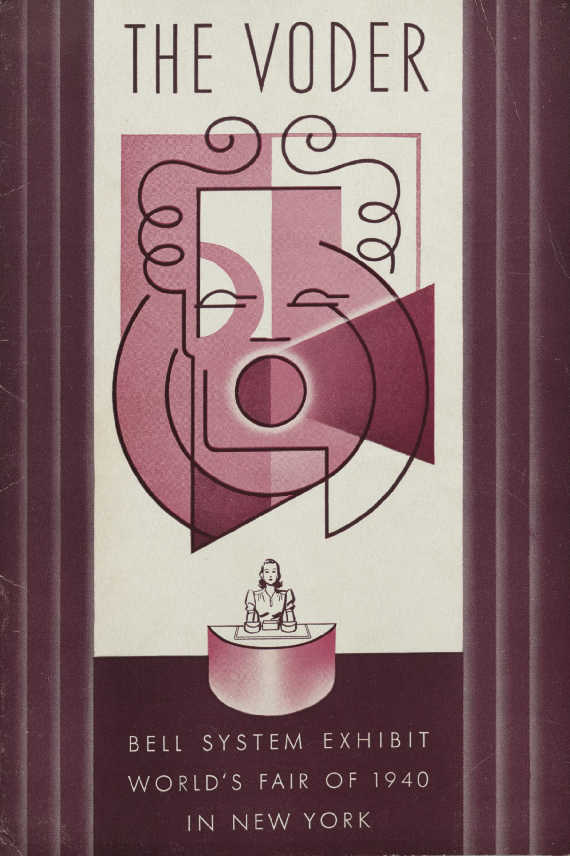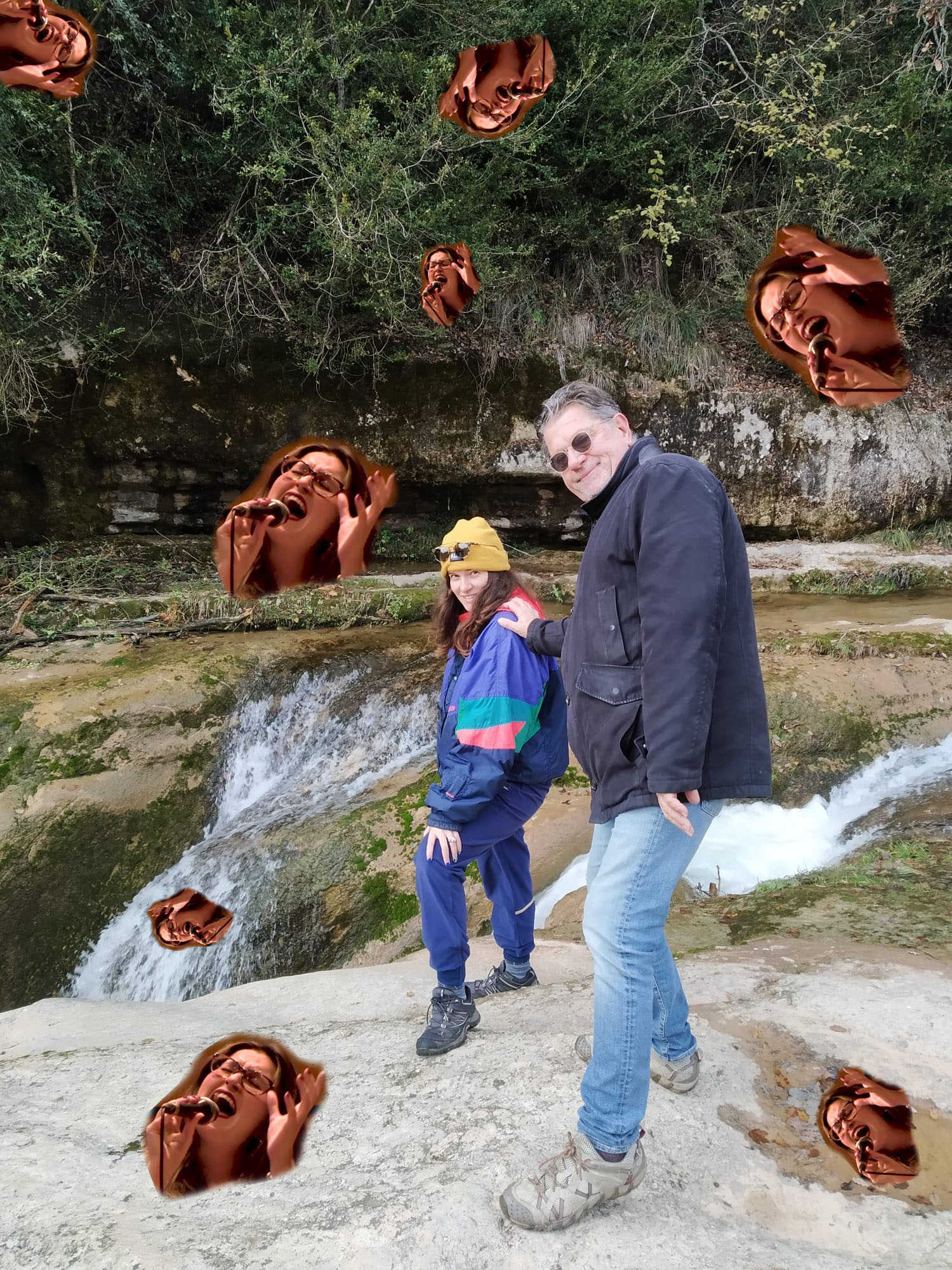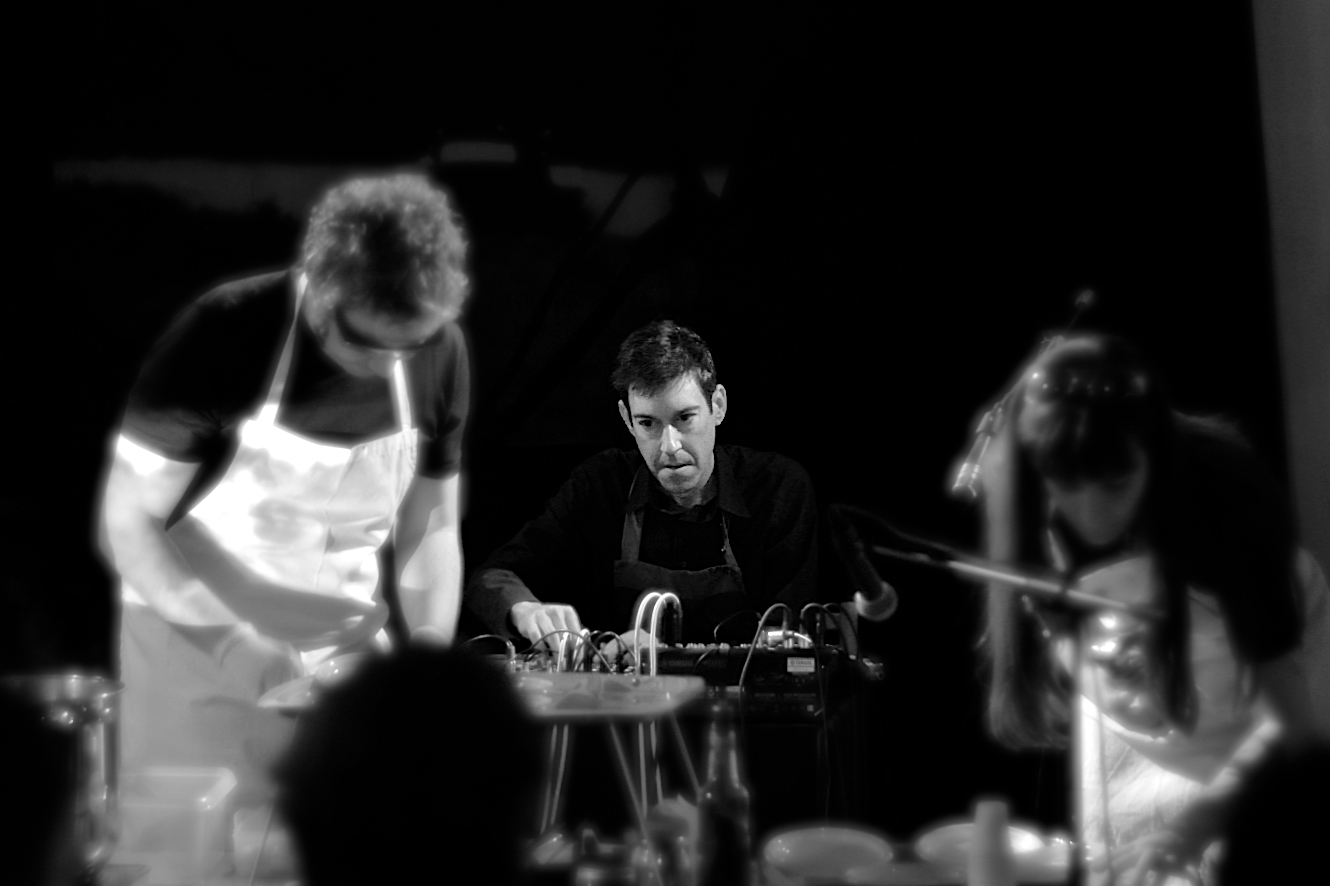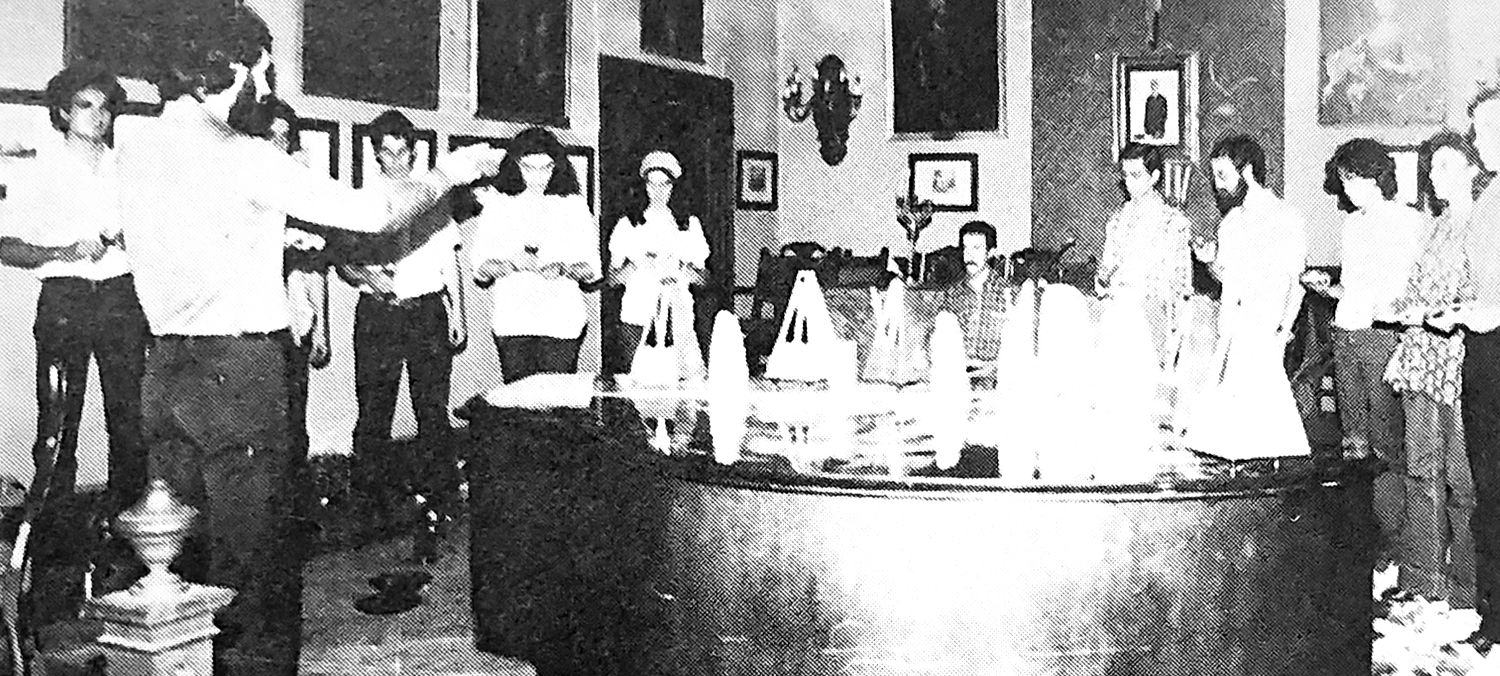Jaume Ferrete Vázquez, Estel Boada and Mancebía Postigo
Performances
03.10.2020
SOLD OUT
Saturady 3 October, 6-8 pm
Courtyard of the Palau de la Virreina.
Free.
Limited capacity with prior registration.
The doors will open 20 minutes before the start of the session.
JAUME FERRETE VÁZQUEZ: VODER (VODER (VODER))) DEMO
It should be emphasized that, in the production of speech from the Voder, no recorded sounds are used. All the syllables, words and sentences that the operator produces are constructed at the moment they are heard by the audience, entirely by the operator’s manipulation of the machine.
Two types of sounds are produced by the human voice mechanism in speaking; the operator controls this with a switch under her left hand. There are ten filter circuits in the Voder, each one controlled by a finger key. The pitch is changed by means of a pedal worked by the operator’s right foot.
In saying the word “concentration” on the Voder, the operator must form thirteen different sounds in succession, make five up and down movements of the wrist bar and vary the position of the pedal from three to five times.
The selected operators were given about a year’s training, this being about the time taken to acquire sufficient skill to produce fairly intelligible speech from the Voder. Some of the operators have now advanced in skill to the point where they can make Pedro sing. It is of course practicable only in the case of operators who have some natural musical ability.
This project was carried out with the 2018 Leonardo Grant for Researchers and Cultural Creators from the BBVA Foundation.
ESTEL BOADA: I WANT TO SING TO EXPLAIN BY SINGING WHAT I WANT TO SING IN ORDER TO SING LATER
When I was first told about the term “action music”, I thought of my family. When I lived with my sister I remember witnessing her sound interventions without warning every day at home. With ninja-type immediacy, she launched into voice training wherever she was, whatever she was doing.
From an early age I sang with my family. I did the third voice and my older sister the main one— a classic combination. When we were very young, our parents composed songs for us to listen to when they weren’t with us. My father continued to compose short, a cappella songs lasting seconds for himself and for us, but my sister and I always had some aversion to them. Nevertheless, he has always composed them, wherever he is, no matter what. When he was still with my mother, if he hadn’t got the recorder with him and he had an idea, he would call her so that she could sing it back to him later. No matter where, no matter who or when, the important thing is to activate “that thing”.
PIL-PIL MUSIC: A SOUND MENU OF LITERARY RESOURCES
Mancebía Postigo + Jaco concert
Comer para recordar. Menú mnemotécnico de recursos literarios (Eating to Remember. A Mnemotechnical Menu of Literary Resources) is a book published by Mancebía Postigo that compiles rhetorical figures that can be found in restaurant menus. Some examples are the oxymoron “vegan sausage” of a macrobiotic restaurant and the antithesis inherent in any Empordanese “sea and mountain” dishes. Some of the stylistic resources that the book includes refer to sound and the palate: from the onomatopoeia of the cod dish pil-pil to the potential alliteration of allioli (garlic mayonnaise) and all (garlic). As part of the Low-Tech Music Session, the Mancebía Postigo collective (in partnership with the experimental musician Jaco) transform these literary devices into sound waves through the live cooking of a refined menu that makes the audience enjoy all the senses, especially the two most marginalized in the kitchen: humour and hearing.
Jaume Ferrete Vázquez (Mollet del Vallès, 1980) works around the notion of politics or ideologies of voice and listening through performances, listening sessions, archives, workshops, conversations, sound works and websites. He has collaborated with various projects, institutions and universities, such as the MACBA; the radio station of the MNCARS; TEOR/éTica in San José; the Museo Universitario Arte Contemporáneo of the Universidad Nacional Autònoma de México; the University of Barcelona, the University of the Basque Country and the Gender Studies Programme of the Universidad Nacional Autònoma de México.
Estel Boada Ibern (Barcelona 1991) currently works as a singer-performer with SOSUN.dance and “Esperit!”. She also works in the educational department of the MACBA and is in charge of graphic communication and dynamism at the Baró de Viver Civic Centre, among other activities. She has participated as a curator in various festivals, such as El Ciclo Macarena (a cycle of artistic interventions in unauthorized spaces), Maques Maques (Sant Andreu Contemporani), El Ciclo del Siglo (with Anna Dot in Sant Cugat) and l’Assalt (EART). She has performed in works such as No sóc una tovallola in the Maristany Art Centre Performance Cycle, Iluminadas in Museum Night with CIA PEDRA, De Kathedraal in L’Estruch (with Daniel Moreno Roldán and Anna Dot), which she developed with Ella, allà y després at the Blue Project Foundation, and Vital el musical with NyamNyam at the Antich Teatre. She is a founder and former announcer of the radio project Fluorescer d’art i humor, which took root in dublab.es, and she continues to collaborate with many other multidisciplinary projects.
Mancebía Postigo Mancebía Postigo is the joint creative project of Mar Cianuro and Òliver Mancebo, which they summarize as “expanded editorial levitation”. They levitate on the ground of popular culture, although they always try to respect the three Es of John Coltrane’s Love Supreme: elation, elegance, exaltation. By expanded editorial levitation they mean that their publications, audiobooks and fanzines must come to life beyond paper, be conceived in bars and other social spaces, be tasted in collective meals, occupy the market, the streets and the dance floor. Since 2015, they have created publications whose main subject is gastronomy and its interactions with politics and philosophy, and they have carried out actions and performances in which they mix polypoetry, cooking and sound art. They have performed and carried out projects at the LEM Festival, the L’Eufònic Festival, Gràcia Territori Sonor, the PUMPK self-publishing festival in Iruñea, the Barcelona Poesia festival and the MACBA, among other events. They have collaborated with other artists from the city’s cultural underworld, such as Usted es un Colectivo, Maria Sevilla and Oriol Luna, and together with Laia Arqueros and Jaco they form the La Forasteria artistic collective. They have also organized the festivals FRESCA!, a self-published book fair at the Abaceria central market in Gràcia; ALZINA! A Meeting of Books and Mags (a space of the Save L’Alzina Platform and the houses of Carrer Encarnació in Gràcia); and FLIA: An Independent Self-Published Book Fair in Gràcia.














